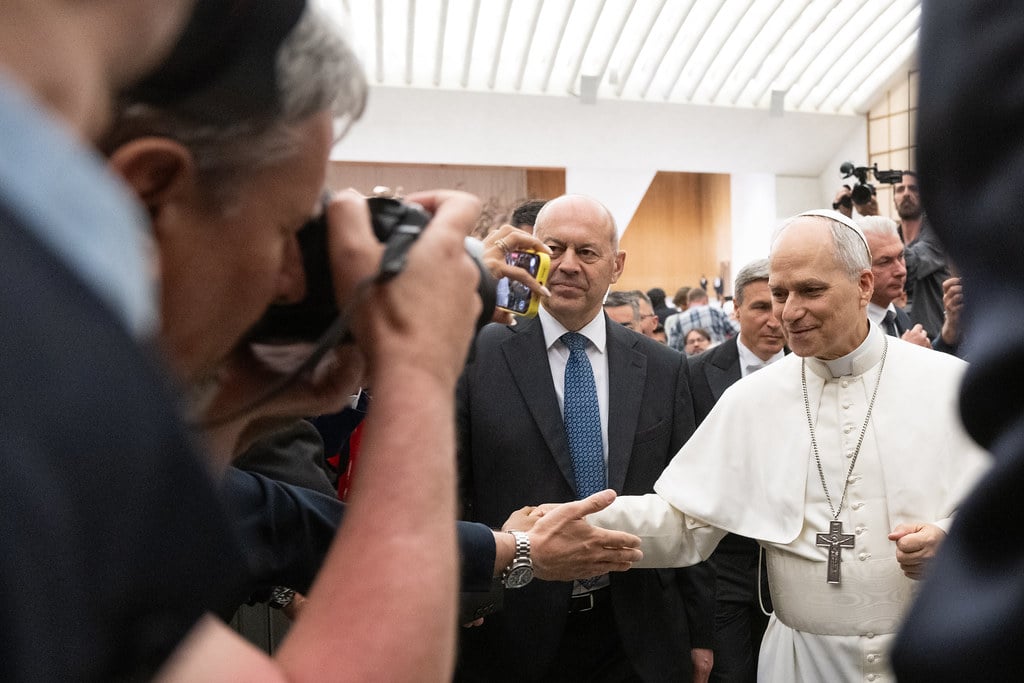Pope Leo XIV is planning to take on the challenge of how Christians and society as a whole should respond to Artificial Intelligence.
The new pope told the College of Cardinals why he chose the name that he did:
I chose to take the name Leo XIV. There are different reasons for this, but mainly because Pope Leo XIII in his historic Encyclical Rerum Novarum addressed the social question in the context of the first great industrial revolution. In our own day, the Church offers to everyone the treasury of her social teaching in response to another industrial revolution and to developments in the field of artificial intelligence that pose new challenges for the defence of human dignity, justice and labour.
This proposed papal project could represent a massive shift away from the internal disputes that preoccupied Francis’ pontificate. If Leo XIV can apply the treasures of the Catholic Church’s “moral authority and academic strength” to the profound challenges AI presents for labor, bioethics, and more, it will demonstrate a Catholic Church that is bold, vital, and relevant, with a profound wisdom to share with the world.
This contrasts with the focus of Pope Francis:
For a papacy to address such external questions would be refreshing, as so much of the Francis pontificate was focused ad intra. Certainly, Pope Francis’s programmatic contribution to the church’s magisterium — the apostolic exhortation Evangelii Gaudium — contained a number of important principles for promoting the church’s missionary and evangelistic efforts. Pope Leo XIV has cited these very positively. But Francis’s desire for evangelism was overshadowed in popular perception by the debates he allowed to erupt over questions long thought to be settled matters of church doctrine or discipline.
Francis’s reign was marked by internal dispute after internal dispute that seized far more headlines than any outward evangelism did. Will the church give remarried divorcees Holy Communion (controverted from 2014 to 2016)? Will it allow optional clerical celibacy (2019)? Will it ordain women to the diaconate (2021–24)? Will it allow priests to celebrate the older, traditional form of the Mass in Latin (2021–23)? Will it bless the union of gay couples (2021, and then 2023–24)?
Is there a lesson here for Protestants as well?
My impression is that when a new moral issue arose in secular society—for example, same-sex marriage–churches as a whole responded with, “well, should we accept that in the church?” Some said, “no!” Others said, “yes!” And then the two sides argued with each other. But the focus was indeed within the church.
The fact is, liberal Protestants, as well as many liberal Catholics, have long been eagerly accepting just about every moral innovation and intellectual trend that pops up among non-believers. Of course, such a stance forfeits any moral leadership. In fact, the leadership goes the other way: society leads the church, rather than the other way around. Or, as confessed in the slogan of the World Council of Churches, “the world sets the agenda for the church.”
It would be good if the church would exercise moral leadership instead of focusing on internal controversies. But that can’t happen if the church lacks a common position. The controversies within the church need to be resolved if the church is to take a stand on an issue that could be helpful to the broader society.
I myself am skeptical of both the promise and the peril of AI, but perhaps there could be a Christian consensus around that issue. Theologians could help sort out the difference between human beings and machines and Christian activists on both the left and the right could push for laws and regulations that would limit the harm that our technological tools might do.
Other issues will, by their nature, resist consensus. In another address, Pope Leo affirmed that marriage is between a man and a woman and took a strong pro-life stance. Good for him, but lots of Catholics—including most of the Catholics who wield political power—don’t go along with that. Exercising leadership on those issues will have to involve cracking down on Catholics who deny Catholic teaching, something the church used to be very effective at, for better and for worse.
Protestants don’t have a centralizing authority that can police its members as Catholics do, which, again, is for better and for worse. What Protestants can do is split off from each other. Perhaps the Methodists are showing the way. By splitting into distinctly liberal and distinctly conservative denominations, each set of churches can be more unified around its common commitments. Liberal factions are dying out, since they have little to offer the secularists beyond what they already have, so perhaps that attenuated version of Christianity will fade away of itself. That would allow Christians, both Protestants and Catholics, to present a common front on moral, if not theological, issues.
Photo: Pope Leo XIV audience with journalists via Flickr, https://creativecommons.org/licenses/by-nc-nd/2.0/












